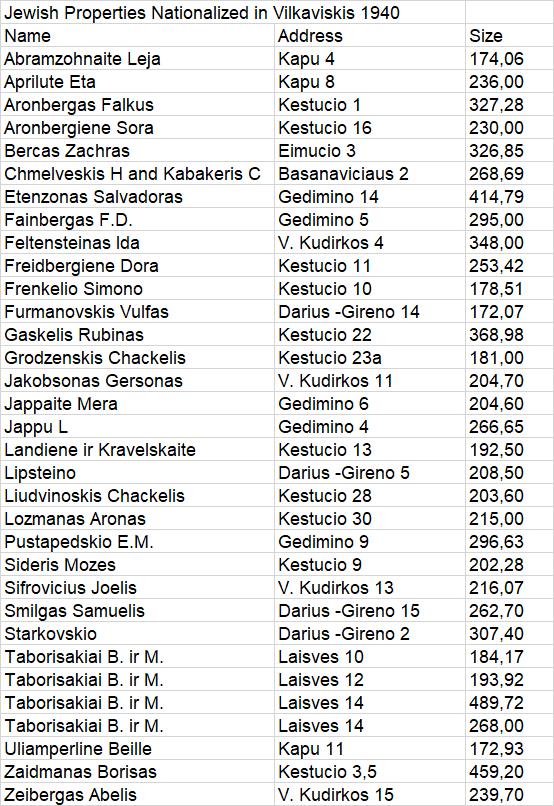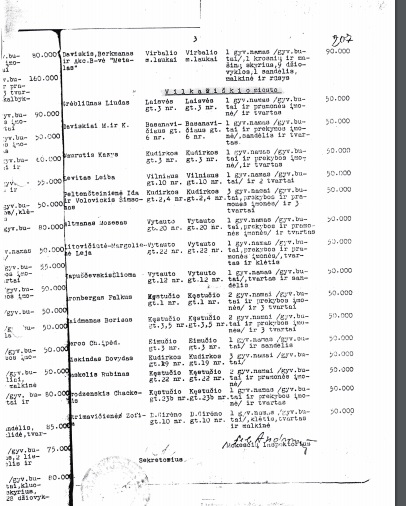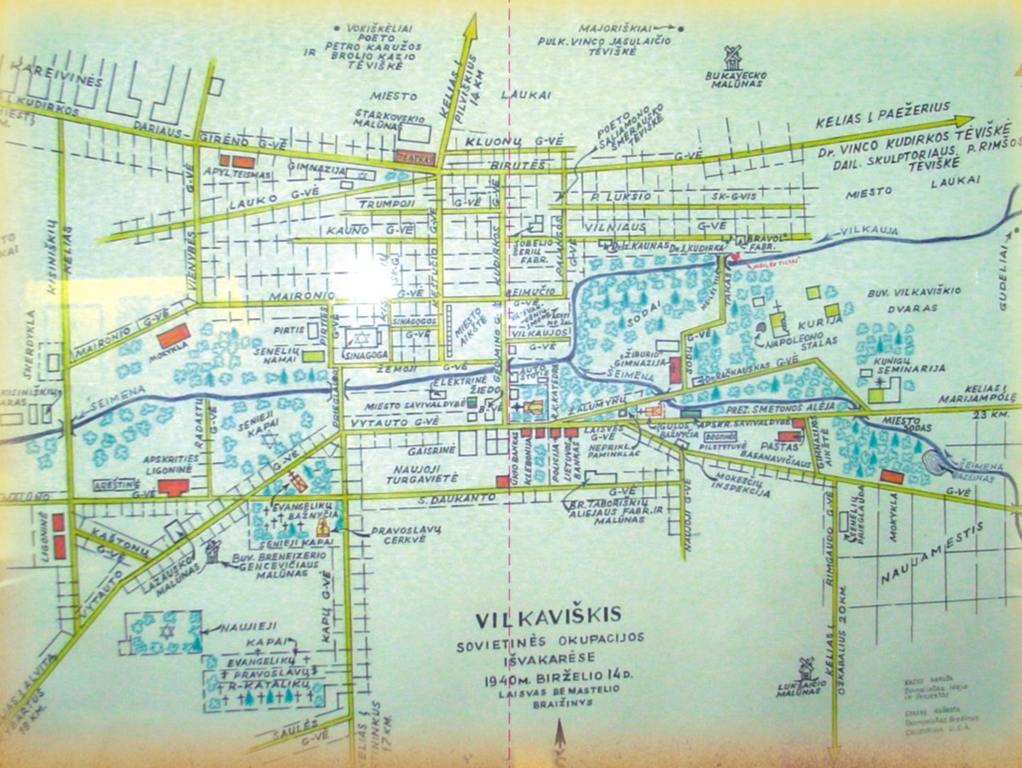VILKAVISKIS
A small town in Southern Lithuania
Where the Jewish Community is no more.
The Russian Occupation 1940 - 1941
When Eastern Europe was divided between Nazi Germany and Communist Soviet Union, the Baltic States fell under Russian domination. We felt this when a Russian Officer and his wife and child where billeted in our house. My father ensured that they were well treated and this was later to save my life.
Its important to remember that when the Russians occupied Lithuania in 1940 and Lithuania lost its independence and became part of the Soviet Union, many of the cadres of the new administration were Jewish. When the collectivization program began it was in many cases these Jewish cadres that went into the villages and demanded that the peasants hand over their produce. As you can imagine this caused an even deeper hatred towards everything Jewish.
From an interview with Gila Shoham
Our life had been calm and happy by summer 1940, which is embossed in my memory. In 1940 many things changed for our family. The Red Army came to Lithuania and our town as well. It’s difficult for me to say what my parents’ attitude towards the Soviets was, as I was too little. I know that the Jewish people expected the Soviet regime to free them from poverty and oppression. Our family had a great living. I doubt that we welcomed the Soviets. The wave of change took place on the very first day. The Jewish school was converted into a common school where the subjects were taught in Lithuanian. My father was fired and we were evicted from the school apartment. We went back to our house, which hadn’t been nationalized yet. Then they were after my father. The book on the municipal self-government of Vilkaviskis, containing the photographs of its members, including my father’s, was displayed in the window case of the town book store.
I don’t know what happened to the other members, but my father was mildly repressed. He was sent to teach at a Lithuanian school in a small town, Lazdijai [about 110km from Vilnius]. My father came home on Saturday and left on Sunday. Our life changed as well. My mother fired the maids and did work about the house by herself. She didn’t want to be blamed for exploitation. A Soviet officer moved into our apartment and he was given the best room. It was harder and harder to do things about the house. Not only did my favorite, bananas and oranges, vanish from the stores, but the primary products as well. There were only two types of bread, compared to about 20 types. The officials who came from the USSR bought everything from the stores. Nothing was left: there were no sausages, butter, food, cakes, and manufactured goods.
There was a deficit of the usual tights, linen, soap, and soda. I remember the officers pulling huge bales and packages to the post-offices. They must have been sending presents to their families. My grandfathers’ stores were nationalized. Fortunately, none of us were exiled, though our surnames were in the list of people to be exiled [see Deportations from the Baltics] [7]. Though, the word ‘fortunately’ is irrelevant here. My kin wouldn’t have survived, if they hadn’t been exiled. Another year had passed. I kept on studying at the same school which was turned into Lithuanian from Jewish. In 1941 my brother Zeyev finished a ten-year school, former lyceum, with honors. My parents rejoiced and started thinking of his future, but their plans weren’t to be carried out.
From an interview with Ranana Malkhanova

Jewish Properties Nationalized in Vilkaviskis 1940
Copy of the documents from the Lithuanian archives
A map of Vilkaviskis at the time of the Russian occupation 1940 -1941
This site was built by Ralph Salinger of Kfar Ruppin, Israel
It is built to the glory of the Jewish Community of Vilkaviskis
You can contact me with any comments at salinger@kfar-ruppin.org,il





